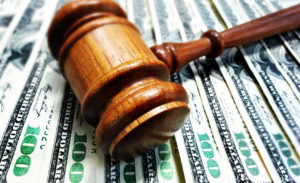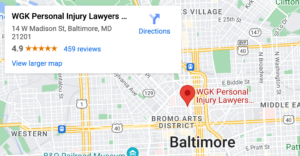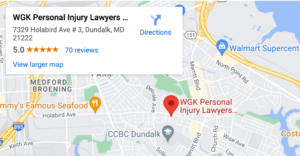
When you are injured because of another person’s negligence, you can recover compensation for your injuries. Tort law provides the legal systems for seeking compensation for your economic damages and non-economic damages.
However, it also provides for punitive damages when a defendant’s actions are particularly reprehensible.
If another party caused your injury, talk with a personal injury attorney before accepting a settlement offer to make sure you receive compensation for all available damages.
Table of Contents
What Are Punitive Damages?

There are three types of damages available in a personal injury case.
The first type of damage is economic damages or special damages. Economic damages reimburse an injured victim for financial losses.
Examples of economic damages would be lost income and medical bills.
The second type of damage is non-economic damages or general damages. General damages compensate the plaintiff for their pain and suffering.
Both economic and non-economic damages are called compensatory damages. The damages award is intended to compensate the accident victim for losses and damages the victim sustained because of the other party’s negligence.
The third type of damage is punitive damages or exemplary damages. Punitive damages are not intended to compensate the plaintiff for losses or damages. Instead, the purposes of punitive damages are:
- To deter the defendant and others from repeating similar conduct, and,
- To punish the defendant for his conduct
Punitive damages are not awarded in most Maryland personal injury cases.
When Are Punitive Damages Awarded in Maryland?

Maryland’s laws regarding punitive damage awards are very strict. Punitive damages are rarely awarded in Maryland lawsuits, including car accident cases, medical malpractice cases, or cases involving breach of contract.
The reason is that Maryland punitive damage laws require that you prove that the defendant acted with actual malice instead of gross negligence. Many states use a standard of gross negligence or willful, wanton disregard for the safety of others.
Unfortunately, proving that someone was motivated by malice to injure or kill someone is a high standard to meet in many personal injury cases. Actual malice is defined as acting with an “evil motive” with the intent to kill or injure someone.
The Burden of Proof for Punitive Damages
The plaintiff in a lawsuit must prove that the defendant acted with actual malice by providing clear and convincing evidence.
The burden is to prove that the allegations are more likely to be true than untrue. The jury must find that it is highly probable that the defendant acted with actual malice and intended to kill or injure.
How Are Punitive Damages Calculated?

If a jury awards punitive damages, the amount of punitive damages depends on the facts of the case. In many cases, the amount of punitive damages is based on compensatory damages.
A multiplier is applied to the value of the compensatory award.
There is no statutory cap on punitive damages in the state of Maryland. The value of punitive damages could be as high as three to ten times the amount of compensatory damages.
Juries are instructed to award punitive damages in an amount that would deter the defendant and others from engaging in similar conduct. The award must be proportionate with the wrongfulness of the defendant’s conduct.
Federal Laws Regarding Punitive Damages
In addition to state laws that govern punitive damages, the United States Supreme Court has addressed the issue of punitive damages. The Court held that defendants are entitled to due process principles to avoid awarding of punitive damages that would be without merit or grossly excessive.
What Should I Do After an Injury?
Protecting your right to recover fair and just compensation for an injury is vital. The damages caused by an accident or injury can be substantial. Even if your case does not qualify for punitive damages, you may still be entitled to compensation for other damages.
Accident victims can receive compensation for their:
- Medical bills and expenses
- Loss of income and benefits
- Decreases in future earning potential
- Cost of ongoing medical and personal care
- Physical pain and suffering
- Psychological, mental, and emotional distress
- Scarring, permanent impairments, and disabilities
- Decreases in quality of life or enjoyment of life
- Property damage and other financial losses
Careful documentation of your damages after an accident increases the chance you might receive maximum compensation for your injury claim. Part of documenting your damages is seeking prompt medical treatment. You need medical records to prove that the accident was the cause of your injury.
Call Our Maryland Personal Injury Lawyers for a Free Consultation
For more information contact the Baltimore personal injury law firm of WGK Personal Injury Lawyers to schedule a free initial consultation.
WGK Personal Injury Lawyers
14 W Madison St, Baltimore, MD 21201, United States
(410) 837-2144


